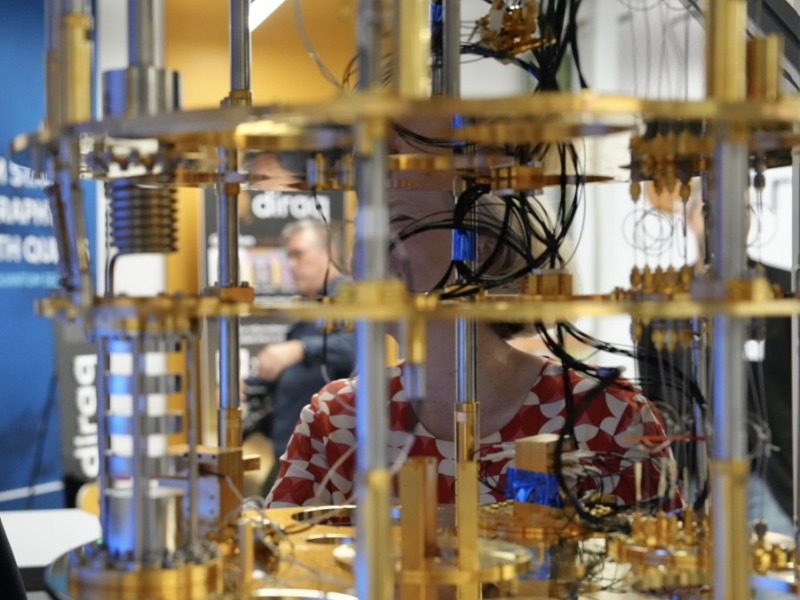Sydney-based startup Diraq is confident it can develop the world’s first commercial quantum computing system in just over four years’ using silicon quantum dots, beating out other local and international players.
At the opening of its new laboratory at the University of New South Wales on Tuesday night, Diraq founder and chief executive Andrew Dzurak said the company remains on track to produce a fault tolerant quantum computer by 2028.
“In just over four years’ time, we intend to develop a complete quantum computing system. Many thousands of quantum bits made in chip foundries, with all the control systems [from] Diraq,” he said.

Professor Dzurak, who has just secured another $23 million for the company to continue pursuing its approach to quantum computing, has spent the last 25 years developing silicon quantum dot technology.
The concept was born out of a 1998 research paper by American researcher Bruce Kane, who at that time was at UNSW, which now underpins much of Australia’s quantum computing efforts, including Silicon Quantum Computing (SQC).
Diraq’s approach – which differs to the atom-based approach of SQC and Professor Michelle Simmons – allows it to leverage the trillions of dollars invested in semiconductors over the past six decades.
Professor Dzurak told the audience gathered in the bowels of UNSW’s science and engineering building he is convinced that using “exactly the same technology as we have inside our mobile phones… it is the only way to get to fault tolerant quantum computing”.
“In [our new] lab, we’re currently measuring devices from foundries around the world. These are devices that are already providing extremely promising results,” he said, adding that there would be announcements to be made in the coming months.
The company plans to use the $32 million raised through the second part of its Series A to expand its local operations and launch into the US market, while continuing to pursue the development of a quantum computer. Total funding sits at $205 million.
Professor Dzurak said “competing technologies, be they superconducting qubits, photonics qubits or ion qubits” are not commercially viable because they consume significant amounts of power.
“These systems need huge space and enormous amounts power to run. Estimates of megawatts of power for just one quantum computer. This is not a commercial pathway,” Professor Dzurak said on Tuesday.
“In contrast, we can run out quantum computers with just a couple of kilowatts. We have a vision that data centres in the future will have banks of Diraq quantum computers that will be performing algorithms that we will use eventually on a daily basis.”
PsiQuantum, the US-based company invited alongside 20 other firms to an expressions of interest process conducted by the federal government last year, is one such company betting on a photonics-based approach.
Industry and Science minister Ed Husic, who missed a Cabinet meeting in Perth to open the $2 million laboratory, said the lab was a “big deal” for Diraq and the wider quantum industry that was starting to emerge.
“We rank fifth globally in quantum computing research. This country, the small country that’s always underestimated, is making all that headway. It’s very important to recognise and use that to fuel further growth,” he said.
“The tenacity, the foresight and the drive a company like Diraq will ensure we are a global leader in this area and… we’re getting behind you and others by implementing the quantum strategy.”
Professor Dzurak thanked federal and state government, both past and present, for their bipartisanship on quantum, as well as the United States government’s Army Research Office, which has been funding Diraq research since 1999.
“We see bipartisanship when it comes to the development quantum computing, and I really respect the way that you Ed [Husic] have acknowledged that time and time again about the bipartisan nature,” he said.
Professor Dzurak closed by saying, “We will build the world’s first fault tolerant quantum computer and we’ll build it right here in Sydney with an Australian headquartered company, ultimately a global company.”
Do you know more? Contact James Riley via Email.

